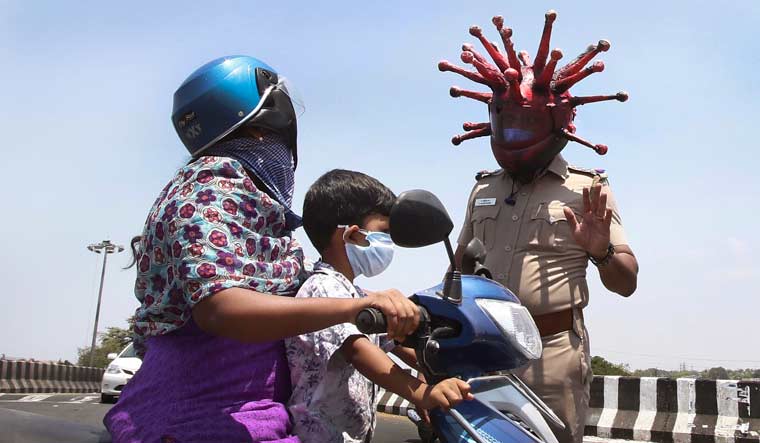It's a fatigue of a different kind. Public health experts refer to it as "prevention fatigue" or "pandemic fatigue".
According to the WHO, pandemic fatigue is a natural and expected reaction to sustained and unresolved adversity in people’s lives. "It expresses itself as demotivation to engage in protective behaviours and to seek out information, as well as in feelings of complacency, alienation and hopelessness," the global health body said. Pandemic fatigue evolves gradually over time and is affected by the cultural, social, structural and legislative environment.
Many countries have been reporting an increase in "pandemic fatigue", where people feel demotivated about following recommended behaviours to protect themselves and others from the virus. The issue was discussed at a recent meeting of high-level public health experts from over 30 countries and partner organizsations in the WHO European Region.
According to Prof. Cornelia Betsch, Heisenberg-Professor of Health Communication at University of Erfurt, Germany, fear is a motivator for protective behaviour. "But it wears off as people adapt to the threat. Fatigue also occurs if we do the same things repeatedly for a long time," Betsch said at the WHO Europe region remote gathering on the subject.
Finding "effective ways" to tackle this fatigue and "reinvigorate public vigilance" is a growing challenge that governments and health authorities face as this prolonged public health crisis continues, it was said at the gathering.
Closer home, Union Health Minister Dr. Harsh Vardhan also cautioned against "prevention fatigue" to describe non-adherence to COVID-19 appropriate behaviours, at a recent interaction with social media users.
"People tire out when they have to constantly take precautions. Some of them also give up taking precautions for various reasons. My message to everyone is that we must all diligently take precautions," the minister said, urging people to follow COVID-19 appropriate behaviour during the festival season. Upcoming festivals and winter season has had the health ministry worried, given how festivals such as Ganesh chaturthi and Onam led to a rise in COVID-19 cases in Maharashtra and Kerala respectively.
Though states such as Maharashtra and Gujarat have issued advisories against holding garba, dandiya festivities during Navratri, concerns remain about the possibility of gatherings of any sort, and people moving out of their homes for celebratory activities. In West Bengal, doctors have already warned the state authorities about a "tsunami of infections" if public gatherings during Durga puja were not banned, after they noticed a rise in cases during the initial periods of puja festivities that began this week.
“Each and every one of you should take ownership at your own levels: personal, society, RWA, colony, and office," Vardhan said, adding that festivals would be enjoyable only if people stayed healthy.
The Union government has also launched the "jan andolan" campaign to encourage people to wear masks, follow physical distancing, and maintain hand hygiene. Under the plan, communication would be targeted at people in high case-load districts, and emphasis would be on banners, posters, and high intensity media campaigns to urge people to take the necessary precautions.
The phenomenon of "prevention fatigue", however, is not new; it has also been widely discussed with respect to HIV, both due to people finding the messaging around precautions tiresome, as well as due to the optimism related to the effectiveness of anti-retroviral therapy.
Public health experts in India have also been emphasising on community participation as was done in HIV-AIDS campaigns to ensure that people practice COVID-10 appropriate behaviour. However, whether the government is able to replicate some of the successes of the HIV-AIDS prevention communication programmes this time, remains to be seen.



